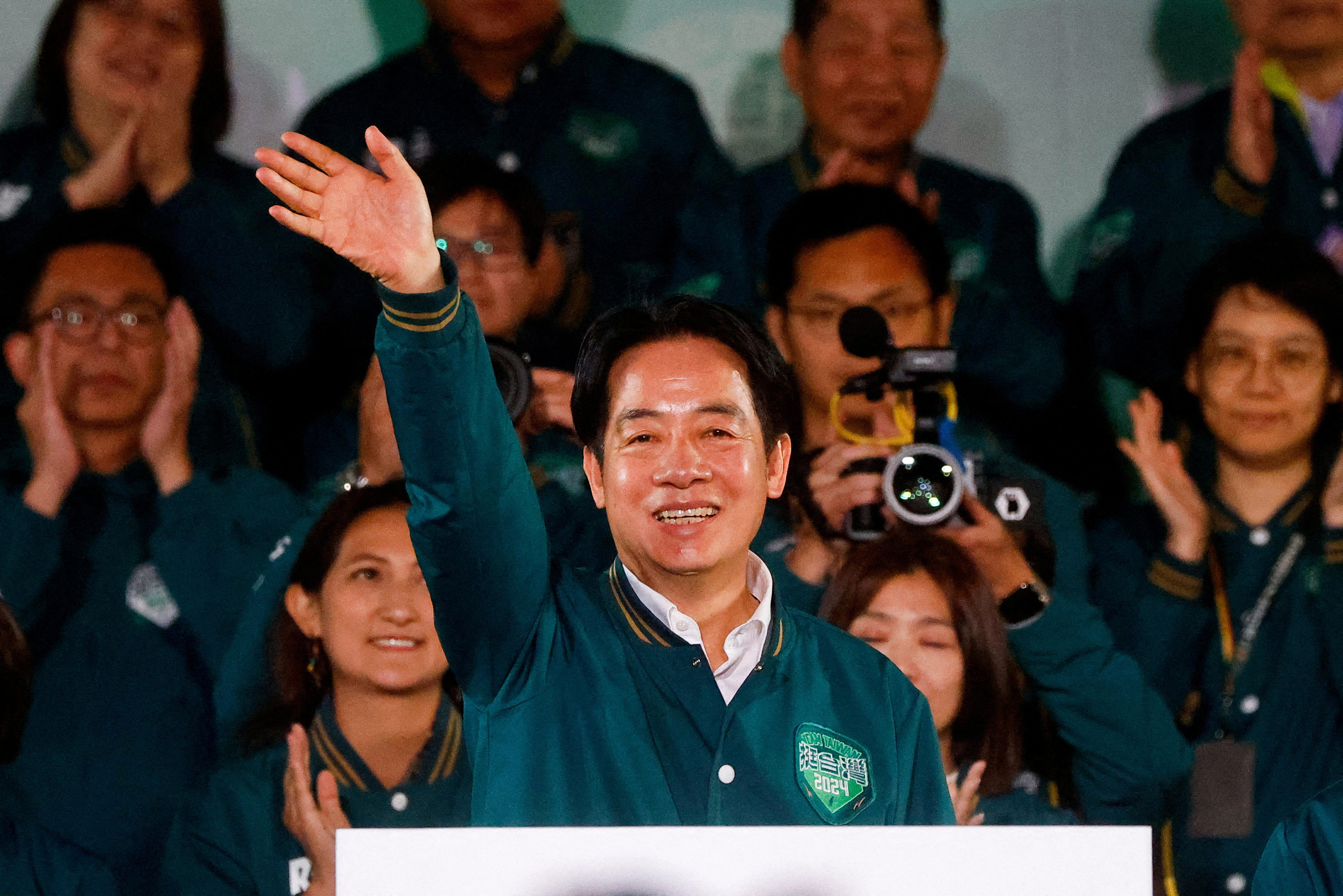Американският служител, който ръководи органа, който се занимава с неофициалните връзки с Тайван във вторник, осъди "нещастното" решение на Науру да прекъсне връзките с Тайпе малко след избори и предупреди, че обещанията на Пекин често остават неизпълнени.
Тихият океан, където се намира малкият Науру, се превърна в източник на интензивна конкуренция за влияние между Вашингтон, който традиционно го гледаше като свой заден двор, и Пекин, който се насочи към тайванските дипломатически съюзници там.
Китай твърди, че Тайван е негова собствена територия без право на връзки между държави, позиция, която Тайван силно оспорва.

Лаура Розенбергер, председател на Американския институт в Тайван (AIT), със седалище във Вирджиния, присъства на пресконференция в Тайпе, Тайван, 16 януари 2024 г. REUTERS/Бен Бланшар

Новоизбраният президент на Тайван Лай Чинг-те, жестове на Демократическата прогресивна партия (DPP), докато присъства на митинг след победата на президентските избори, в Тайпе, Тайван, 13 януари 2024 г. REUTERS/Ann Wang
Официални лица на САЩ по-рано изразиха безпокойство от това, че Китай пренебрегва съюзниците на Тайван, особено в Централна Америка. След като Науру прекрати връзките си с Тайван в понеделник, само два дни след президентските избори в Тайван, на острова останаха само 12 държави, които официално го признаха.
Лаура Розенбъргер, председател на базирания във Вирджиния Американски институт в Тайван (AIT), каза пред репортери в Тайпе, че ходът на Науру е „жалък“ и Съединените щати насърчават всички страни да разширят ангажимента си с Тайван.
„Въпреки че действието на правителството на Науру е суверенно решение, то все пак е разочароващо“, каза тя.
„КНР често дава обещания в замяна на дипломатически отношения, които в крайна сметка остават неизпълнени“, добави Розенбергер, имайки предвид Китайската народна република.

В момента дванадесет държави признават правителството на Република Китай в Тайпе.
The United States switched diplomatic recognition from Taipei to Beijing in 1979, but is Taiwan's most important international backer and a major arms supplier.
Taiwan's government has said China specifically chose the timing just after Saturday's presidential election to move on Nauru.
Taiwan's ruling Democratic Progressive Party's (DPP) Lai Ching-te won the election, as expected, and will take office on May 20. In the poll's run-up, China had repeatedly called him a dangerous separatist.
Unusually, Nauru's statement mentioned United Nations Resolution 2758, passed in 1971 and which saw the Beijing government take Taipei's place at the U.N.'s China seat, as a reason for its decision.
Rosenberger said the resolution was being misinterpreted.
"UN Resolution 2758 did not make a determination on the status of Taiwan, does not preclude countries from having diplomatic relationships with Taiwan and does not preclude Taiwan's meaningful participation in the U.N. system," she said.
"It is disappointing to see distorted narratives about UN Resolution 2758 being used as a tool to pressure Taiwan, limit its voice on the international stage and limit its diplomatic relationships."
In the Pacific, only Palau, Tuvalu and the Marshall Islands now have official diplomatic relations with Taiwan.
Rosenberger said she expected U.S. efforts to increase and expand engagement with Pacific Island nations to continue.
Taiwan's government has accused China of offering large sums of money to Nauru. China's foreign ministry did not answer a question on that allegation on Monday, saying only that Nauru had made the "right choice".
Nauru budget documents show two-thirds of government revenue last year came from fees paid by Australia to host a refugee processing centre, which began to be wound down in July.
Budget papers said funding from Australia for the centre was likely to end in 2026, having "a significant impact on Nauru's economy."
Australia said on Tuesday its funding for the refugee centre, which is a key part of its policy to deter asylum seekers arriving in Australian waters by boat, hasn't changed.
"Nauru remains an offshore processing facility. Funding arrangements for the management of that facility have not changed," a spokesperson for Home Affairs Minister Clare O'Neil said in a statement to Reuters.
Australia's Pacific Minister Pat Conroy said Australia respects Nauru's decision and had been told in advance of the announcement, although there were no discussions about the decision.
Reporting by Ben Blanchard; Additional reporting by Kirsty Needham in Sydney; Editing by Christian Schmollinger, Michael Perry and Raju Gopalakrishnan
Автор: Ben Blanchard ; Изтичник: Reuters ; Превод: СТ

